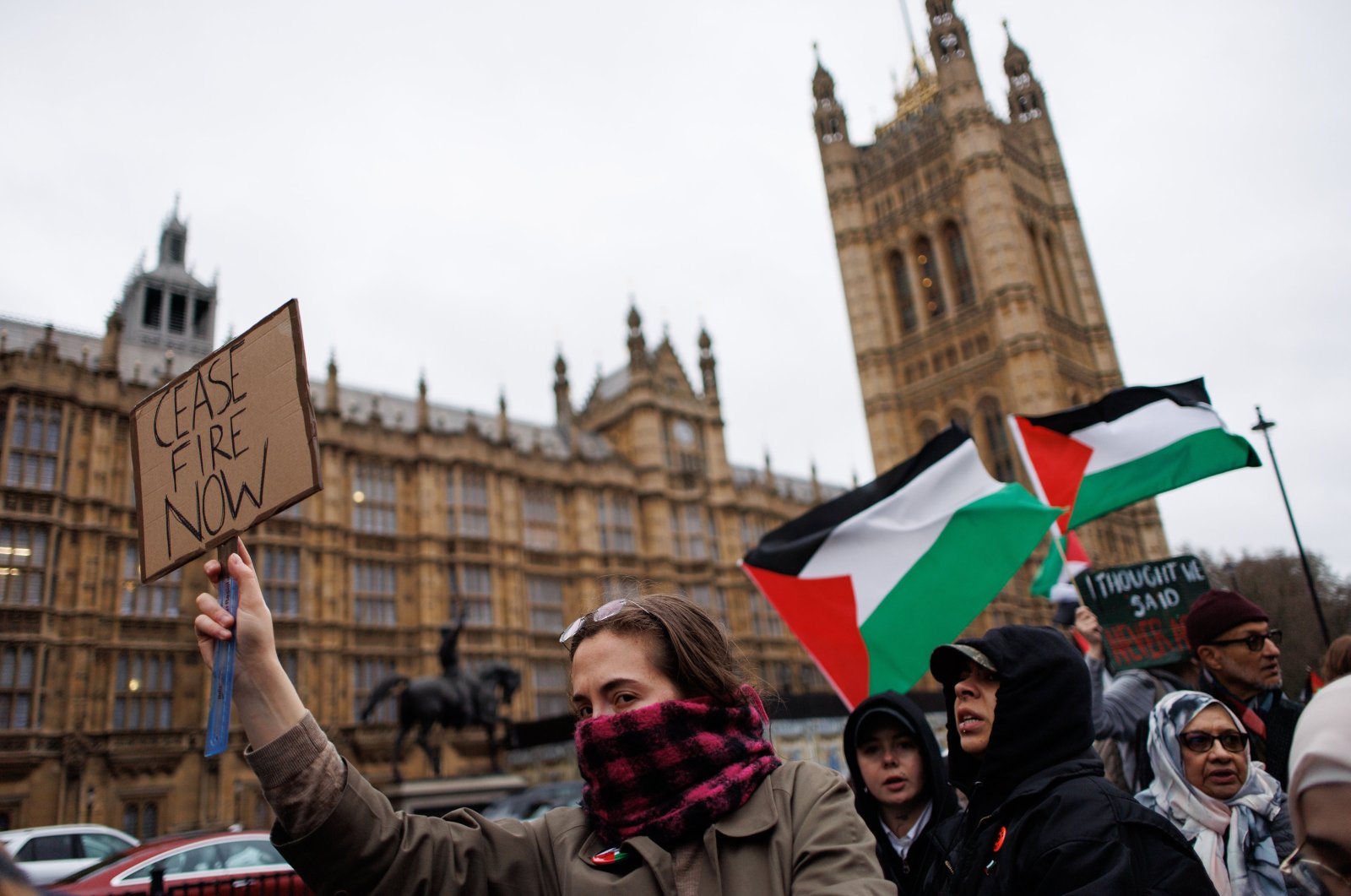
The members of Britain's parliament approved a motion calling for an "immediate humanitarian cease-fire" in Gaza following a chaotic session on Wednesday.
The Scottish National Party (SNP) motion passed as amended without a vote with the majority of MPs screaming "aye" after it was amended by a Labour motion that changed the wording from an "immediate ceasefire."
The uproar followed a decision by the speaker to ignore precedent and allow a vote which helped the opposition Labour Party avoid a large-scale rebellion among its own lawmakers over its position on the Israel-Hamas war.
Lawmakers from the governing Conservatives and the opposition Scottish National Party (SNP) left the debating chamber in protest and some tried to take the rare step of holding proceedings in private.
The speaker, Lindsay Hoyle, eventually apologized and said he had made his decision to allow lawmakers to vote on a range of views because he was concerned about their security after some had faced threats of violence over their stance on the war.
"It is regrettable and I apologize for the decision," he told parliament. "I did not want it to end like this."
Labour, tipped to win a national election expected later this year, has been engulfed by an internal battle over its policy toward the Middle East conflict since the Oct. 7 attack by Hamas that led to Israel's ruthless attacks on Gaza, which destroyed the blockaded enclave and killed almost 30,000 Palestinians.
The debate in parliament was initiated by the SNP, which put forward a motion calling for an immediate cease-fire. Labour and the Conservatives, which have both backed Israel while expressing concern over its actions in Gaza, then proposed amendments, with different conditions they said were necessary before there should be a pause in fighting.
In a usual move, Hoyle selected both those amendments to be voted on, breaking with the precedent whereby one opposition party cannot alter another's motion. Usually, only the government amendment would be selected.
Some lawmakers jeered the speaker when he announced his decision. One member of parliament accused Hoyle, a former Labour lawmaker, of causing a "constitutional crisis."
The government's Leader of the House of Commons Penny Mordaunt said Hoyle had undermined parliament and the government was pulling out of proceedings.
Hoyle's decision meant Labour lawmakers could vote for their party's own plan and avoid having to defy their leadership by supporting the SNP motion.
During the chaos, the Labour amendment was eventually approved verbally, without a formal vote where individual lawmakers' views are recorded. Some lawmakers called for the vote to be held again as their views had not been reflected.
While the outcome is not binding on the British government or likely to be closely watched in Israel or by Hamas, it had the potential to cause problems for Starmer, who is keen to present his party as united, disciplined and ready for power.
"It's disgraceful, it's very disgraceful. Today we have seen British politics at its worst. Politicians are trying to save themselves, rather than saving an entire nation," the Palestinian Ambassador to Britain, Hasam Zumlot, told LBC radio.
Hundreds of protesters outside parliament demanded lawmakers back a cease-fire while the debate took place.
Labour's leadership had said they were reluctant to back the SNP motion because it condemned the "collective punishment" of the Palestinian people and it did not specify that a cease-fire must be observed by Israel and Hamas.
A similar motion tabled by the SNP in November saw Starmer suffer the biggest revolt of his leadership.
The Labour leader initially gave full backing to Israel as it embarked on its military retaliation. But Labour lawmakers and party members have been increasing pressure on the leadership to back an immediate cease-fire.
